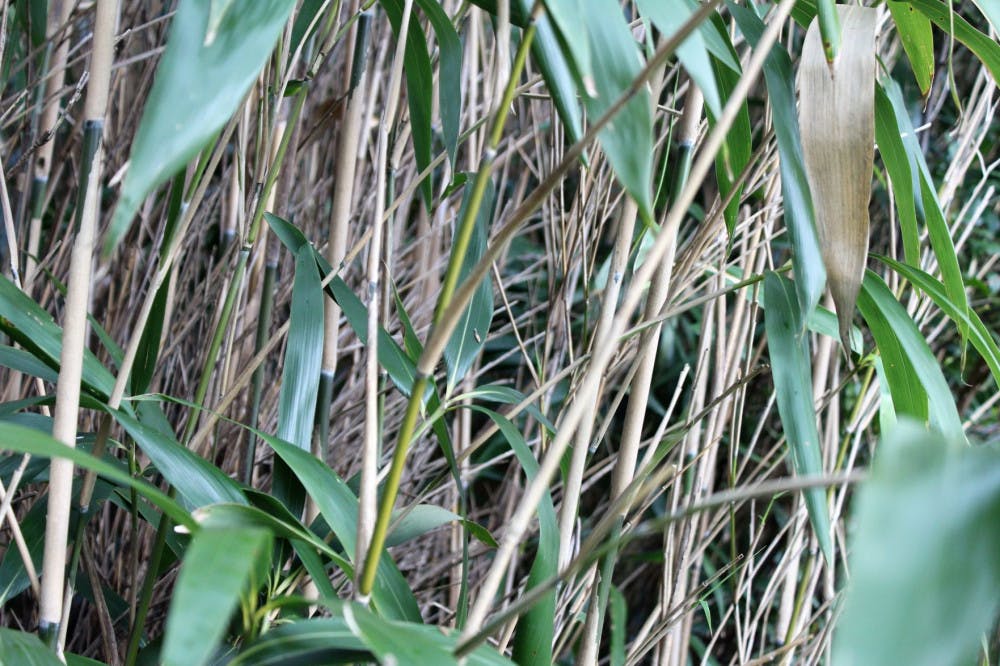If you have extra bamboo and are unsure what to do with it, the Memphis Zoo will kindly take it off your hands for some of its pandas.
Ya Ya and Le Le, two giant pandas, love to eat bamboo, seeing as it makes up 99 percent of their diet, but they are picky with the bamboo they choose to eat.
They will only eat certain species and parts of the plant. Memphis Zoo employees said giving the pandas a wide array of choices is the best way to handle their picky eating habits.
There is a 10-acre bamboo farm near Shelby Farms that the zoo uses to collect food for these pandas, but they need other sources of bamboo to maintain a healthy and sufficient selection.
“We only collect within a 50 mile radius,†said Joseph Miner, a marketing and public relations specialist for the zoo. “A lot of people have bamboo growing. We would just expand our harvesting.â€
Pandas need excessive amounts of bamboo. They have carnivorous digestive systems, but choose bamboo because they are not good hunters and enjoy the availability of vegetation.
According to experts, pandas generally favor bamboo because it is available year round, and there is rarely a lack of the vegetation by their habitat.
The director of the Chengdu Research Base of Giant Panda Breeding in China, Zhihe Zhang, said pandas have suffered in the evolution phases.
“Unlike other plant-eating animals that have successfully evolved anatomically specialized digestive systems to efficiently deconstruct plant matter, the giant panda still retains a gastrointestinal tract typical of carnivores,†Zhang said.
Zhang said the result from their lack of plant-digesting enzymes could be dire.
“This combined scenario may have increased their risk for extinction,†Zhang said.
Emily Weigel, a biological science professor at Georgia Tech, said most mammals that eat vegetation have an ability that pandas do not — digesting cellulose.Â
“The panda is feeding its gut bacteria to break down this part of plants, which then releases nutrients the panda can eat,†Weigel said. “In the big scheme of things, though, pandas are relatively bad at this compared to other organisms that eat plants.â€
Pandas’ consumption of hefty amounts of bamboo is because of the lack of nutritional value. Most carnivores typically extract from 60 to 90 percent of the energy from a meal, while giant pandas get about 20 percent from bamboo.
Pandas also spend about 14 hours per day eating the vegetation. They feast heavily on bamboo because they are not limited to it.
“Pandas do feast on rodents alongside the mostly-bamboo diet,†Weigel said. “Calling a panda a carnivore is not quite right. They are capable of eating both plants and animals.â€
Pandas evolved from the “carnivora†group, and most of their relatives are meat eaters.
For people who have bamboo they would like to donate, the Memphis Zoo has set up a registration on their website. Potential donors can go to memphiszoo.org/bamboo to participate.
After registration, a member of the zoo’s bamboo team will contact potential donors to orchestrate a site visit and cut samples of the bamboo for the pandas to try. If the pandas like the bamboo, the team will contact donors to arrange a harvest.







